Posted by R. John Howe on 01-25-2004 08:08 PM:
The Musicians
Dear folks -
I'd like to try my hand at the piece in the center
foreground in this painting.
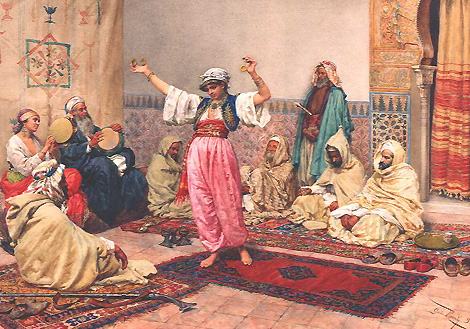
The
one with the small medallion and the corner pieces.
I wonder if this
might not be a not very accurate (as in too narrow) effort to insert, what was a
highly collectible rug for all of the 20th century. I wonder if it could not be
an effort to insert a "small medallion Ushak" like this:
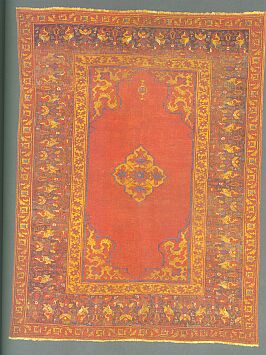
This latter piece is
estimated to have been woven the latter part of the 16th century. I think The
Textile Museum has a couple of these that Mr. Meyers bought on the assumption
that they were perhaps at least 17th century. Turns out that some rug analysts
have discovered that these TM pieces are more likely 19th century copies. (This
should be comforting to those who might have made fairly serious rug purchasing
mistakes.) It also suggests that such designs were about for artists to see when
this painting was done.
Another interesting point is that these rugs are
attractive enough that most collectors interested in "city" rugs, would likely
be interested nowadays in acquiring one of the 19th century
copies.
Others may have different notions about this rug since the basic
layout is similar to those made in a number of locations. Bidjar and Hammadan
come to mind. But to me it looks like the artist was trying to render a small
medallion Ushak.
Regards,
R. John Howe
Posted by Filiberto Boncompagni on 01-26-2004 11:54 AM:
Hi John,
I didn’t mention it before, but the rug you are talking about
can also be seen in Inspection Of The New Arrivals.
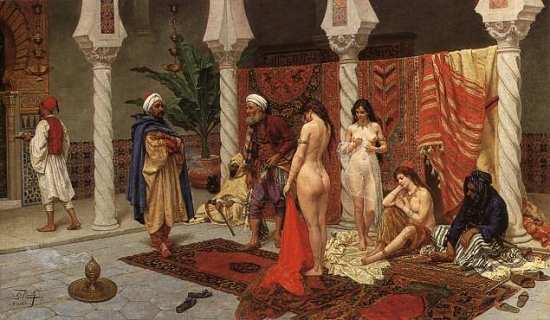
The colors are slightly different - like the overall tone of
the paintings - but that can be imputed to the photographs or to the fact that
the second could be an oil painting: Rosati didn’t work exclusively with
watercolors…
The fact that the same rug appears in two different scenes,
most surely of "studio production", makes me think that its depiction is
reliable i.e. Rosati didn’t take any license in drawing it.
Speaking
about medallion Ushaks, I think the carpet on the background of The Wedding
Gift - which probably appears also in Inspection Of The New Arrivals
above and in The Dancing Girl - is one of them, isn’t it?
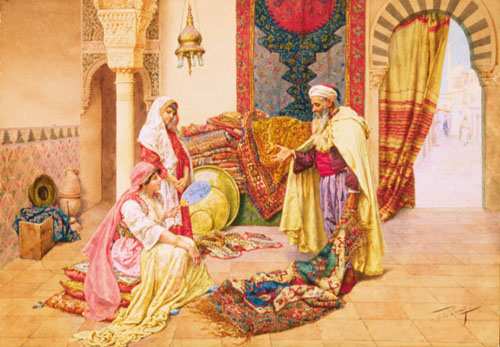
Regards,
Filiberto
Posted by R. John Howe on 01-26-2004 10:22 PM:
Filiberto et al –
I suppose the piece you reference could be an Ushak.
At least there were rugs made there with similar large medallions.
Here
is the first one I could find:
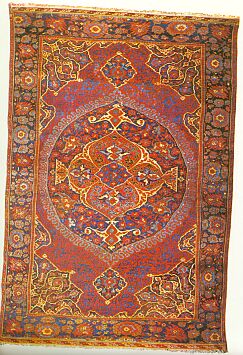
This is indicated to be a “small Ushak medallion” rug. One of
the problems with the labeling of Ushak rugs is that, it appears that sometimes
the “small” modifies “medallion,” as I think it does in the first example I
provided above, but in others it seems clearly to refer to the size of the rug,
as I think it does in this instance. This rug is just short of 7’X10’. That’s
not near the size of the rug on the wall in the painting.
And classic
rugs with large medallions were made in other locations. Look at this
one.
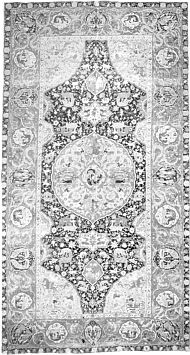
The
caption on this image says that this is “the Sanguszko medallion and animal
carpet. Central Persia, late 16th or early 17th century. 20 ft. 1 ½ in. X 10 ft.
9 in. (604 X 322 cm). Rugs of this sort were woven in the Kirman area. And there
are some Mughal rugs with similar large medallions.
I don’t see any
“anchor” on the central medallion in the rug in the painting, but the general
shape of the field seems similar to this Central Persian rug. Perhaps someone
will find a larger size large medallion Ushak for comparison.
My guess is
that the rug in this painting might be based on a Kirman rug similar to the one
immediately above.
Posted by Filiberto Boncompagni on 01-29-2004 04:06 AM:
Hi John,
No, I think it’s an Ushak. I found this one at page 73 of
Hali # 86.
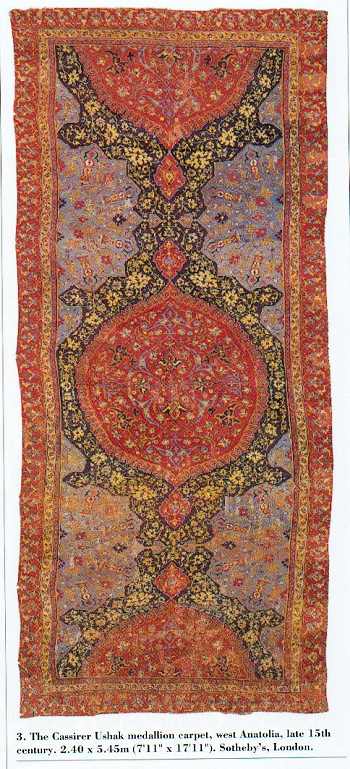
Regards,
Filiberto






